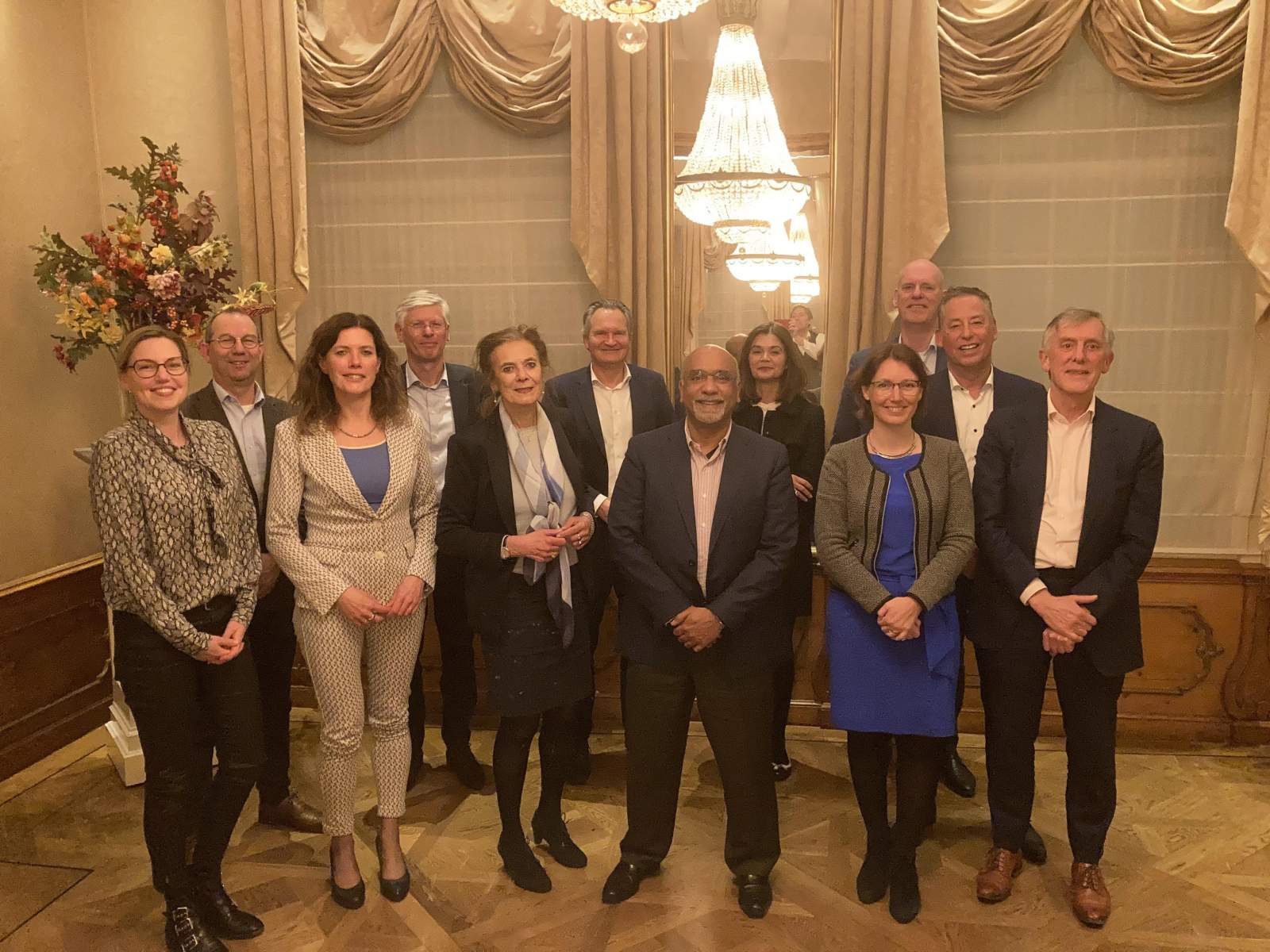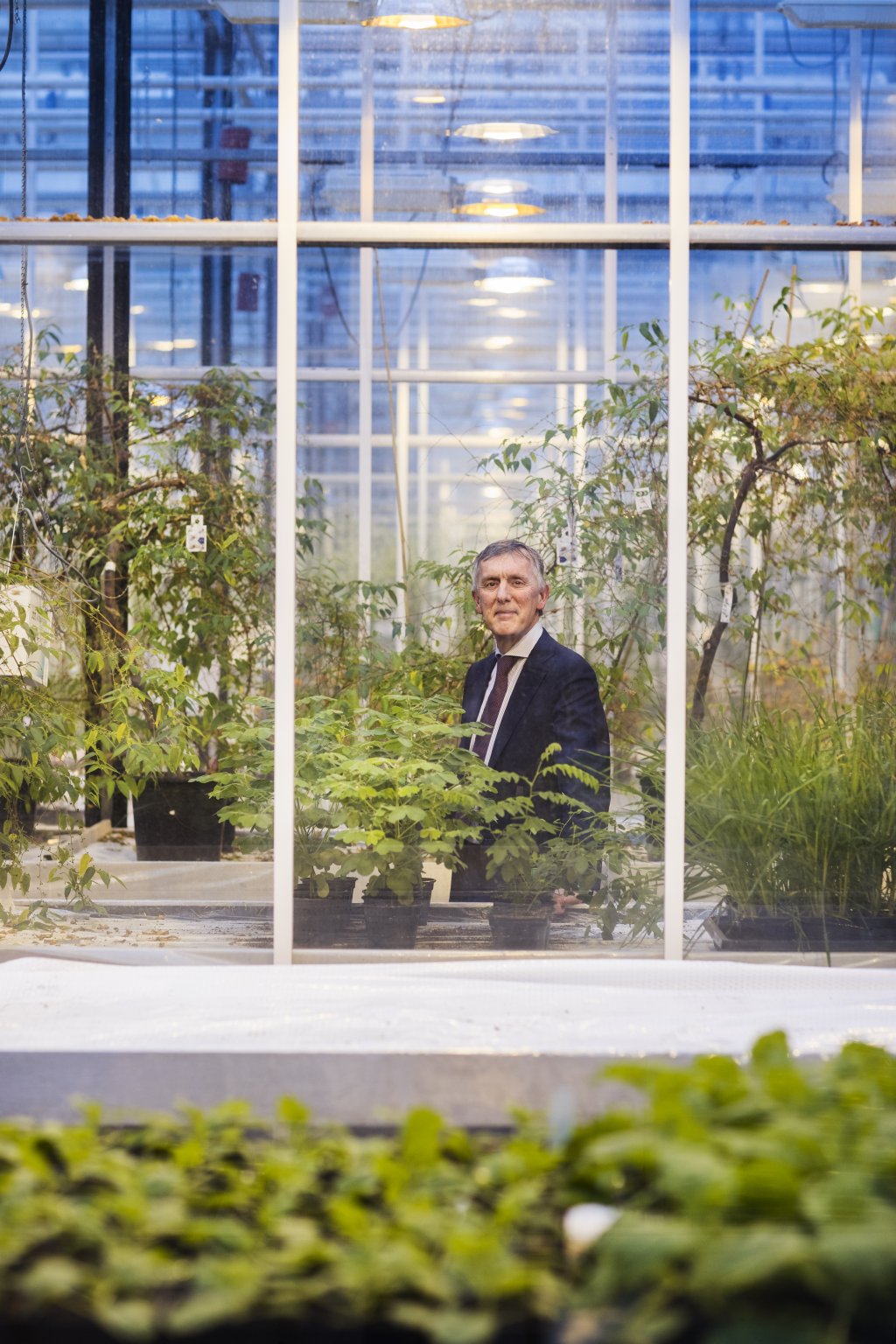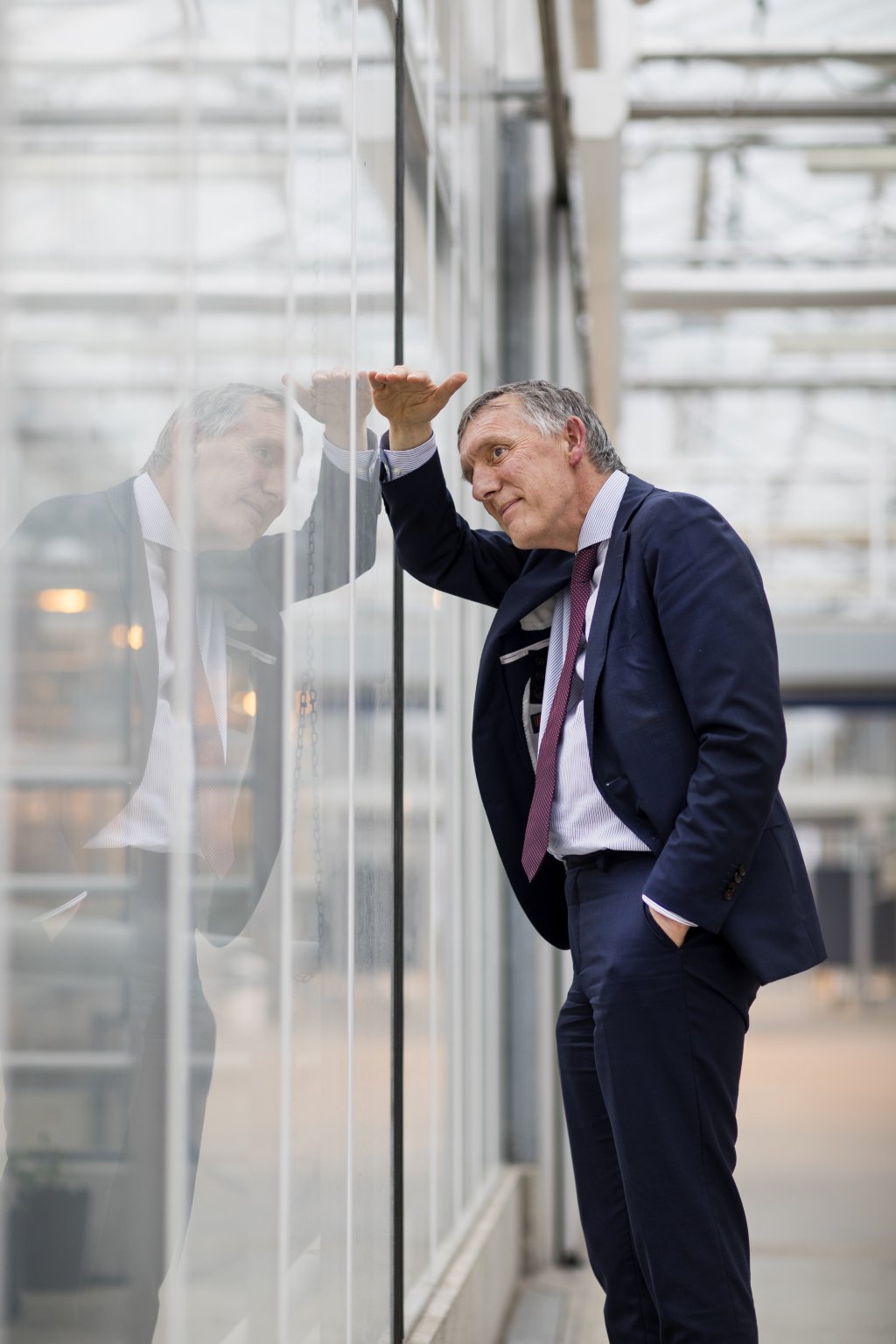On 8 March - after nine years - Arthur Mol will hand over his role as rector magnificus and vice-chairman at Wageningen University & Research (WUR) to Carolien Kroeze, Professor of Environmental Systems Analysis. Mol will return to science and be given a personal chair in environmental sciences. Besides being rector, Mol will also take his leave as chairman of 4TU.Research; the consortium in which he was active together with the rectors of the other three TUs to stimulate research collaborations.
4TU looks back with Arthur on the 4TU partnership but also ahead to the gains still to be made when it comes to strengthening technological sciences. More topical than ever with the current turbulent political and social climate.
When you started as rector at WUR (2015), Wageningen was not yet in the federation. A year later, in 2016, it was and the federation changed from 3TU to 4TU. How do you look back on this period?
Very positively. I was closely involved in the discussions about joining the federation. That affiliation went surprisingly smoothly. From WUR, we saw - both among administrators and scientists - clear advantages in cooperating with the other three technical universities, and vice versa from - then still - 3TU this was also the case.
The beauty of the partnership is that WUR is partly common and partly complementary to the three other TUs. Thus, all four TUs educate engineers who are characterised by the same way of looking at scientific research and education. Engineers want to solve problems and contribute to society. But in terms of content, there are differences. Wageningen University & Research deals with life sciences while the other TUs are more on the design of and dealing with 'dead' matter. WUR's entry into the federation, in addition to other research areas, also provides a different training package and new opportunities for substantive cooperation. Exchanging that knowledge and contacts among themselves will make each TU stronger.
What do you think is the strength of a federation like 4TU?
One strength is the collaboration on content. Through its partnerships, 4TU offers all kinds of opportunities for interdisciplinary collaboration and expanding the network of scientists. Centres such as 4TU.HTM, 4TU.ResearchData and the most recent 4TU.History of Technology centre are organised around a particular discipline. They receive seed money from 4TU to launch research, organise conferences, write position papers or do other things together, and so networks build up.
Also, the five-year High Tech for a Sustainable Future (HTSF) research programme is a tool that has proven itself. Last spring, the 2nd round of this programme started. Young scientists from the four technical universities work together on societal themes such as digital agriculture or personalised care. The HTSF programme is structured in a manner that not only the knowledge but also the collaborations remain within the universities after completion of the programme. 4TU appoints tenure trackers who remain employed by the university after completion of the programme and can transfer their knowledge to other researchers.
Furthermore, as a federation, we share our knowledge in the field of education. What competences and skills does an engineer need? Societal challenges are becoming increasingly complex and almost every solution has an engineering component. This requires a different type of engineer who, more than in the past, also has to cooperate with other disciplines and communicate with his environment. One initiative to share this knowledge is the 4TU.Centre for Engineering Education, They have built an impressive Innovation Map in which best practices on engineering education are shared.
And it is valuable to act together as 4TU in political issues. All TUs need expensive research facilities such as equipment and labs. Issues such as the funding of technical courses, the preparation of VWO students for our bachelors and the control of international students and teachers desired by The Hague are also developments we all have to deal with. These issues are now jointly put on the agenda.
Another great result is the Engineering Sector Plan in which money has been received from the ministry of education to strengthen engineering in the Netherlands. This involves all engineering deans of both the four TUs and those of the University of Groningen.
Collaboration within the federation is going so well because there is a lot of mutual trust.
What does the 4TU partnership concretely deliver for WUR?
What is the benefit of 4TU.Research, the consortium you yourself have been active in?
That is mainly learning from each other and creating mass for new initiatives. Each university operates primarily from its own experience, interest and expertise, but there are also many similarities. TUs recognise processes, challenges and discussions from each other, whether it is the need for interdisciplinary challenged-based research, the broadening of a lecturer's basic competences or innovation in teaching.
This is how the EngD programmes were born. This is a two-year programme after the master's where the student conducts design research at a company or a hospital, thus broadening his or hers palette of skills. Eindhoven already had years of experience with this and in Wageningen we gratefully used that experience to set up our own EngD programme. And its accreditation is also a common process.
Are there any more successes to share?
Yes definitely! I myself am very happy with the establishment of the Netherlands Academy of Engineering (NAE). In the professional field, there was already the Royal Institute of Engineers (KIVI) but when it comes to engineering sciences, there was a lack of collaboration. The beauty of the NAE is that it includes not only scientists working at universities, but also R&D scientists from industry. I expect a lot from this group when it comes to raising the profile of engineering sciences and giving engineering sciences a social face. But also at the level of advising policymakers and the cabinet on technology and science in relation to policy.
What do you think a technical scientist of today needs? Can they get enough out of it?
Because research areas are becoming more and more intertwined, a scientist has to collaborate more and more with other scientists. The mechanical engineer of the past who did everything by himself in splendid isolation no longer exists. Developments accelerate, communication with other disciplines and society becomes more important, and ethical issues arise. Responsible research and innovation is not a fad. Engineers have to learn to deal with it and that has consequences for the educational path. Constant training is important, not only on subject matter but also on skills and competences. This demands a lot from the scientist as well as from lecturers and universities.
It is important for the university as an employer to be clear about which characteristics, skills, competences and attitudes a technical scientist should have. Sometimes it is more effective not to expect everything from one scientist and to divide the tasks: team science. In this perspective, I find UNL's Recognition and Appreciation Programme a positive development in which more attention is paid to the individual talents of a scientist, and at the same time to what it means to work together in a team and to be partly complementary to each other.
What future challenges do you identify for 4TU?
Technology and engineering skills are becoming increasingly important given the societal challenges we face and the type of worker the labour market demands. 4TU's role is to keep STEM on the agenda and ensure continued investment in it. We focus not only on universities, politics and policy, but certainly also on primary and secondary schools.
For the latter target group, we cooperate in 4TU.VO, an online education platform for secondary education. Teachers can find digital teaching modules there, with which they can already introduce their students to the typical research and design skills of an engineer.
And as for your own personal challenges after 8 March?
Grant our Dutch students the international classroom and grant the Netherlands the constant influx of new international talent. Only then will we work on the knowledge society and economy of tomorrow!








